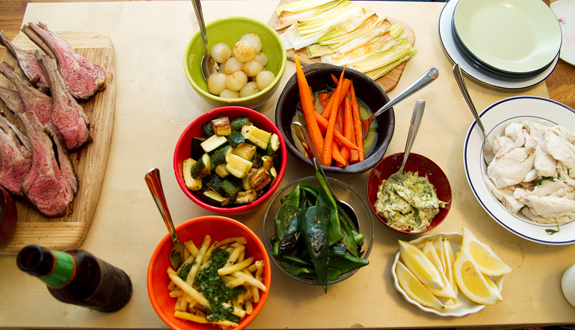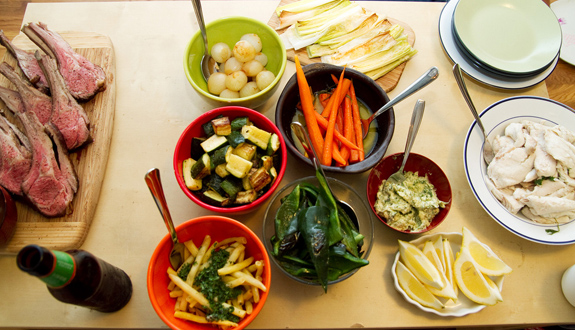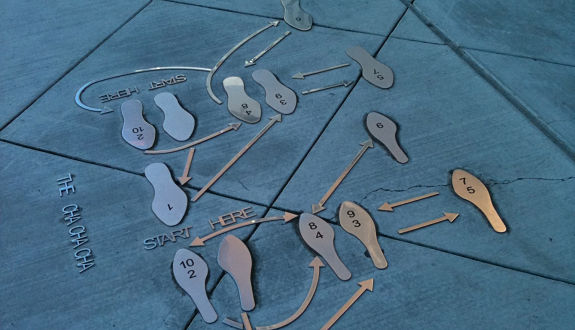Studying for the LSAT: A Culinary Experience?
- by
- Jul 29, 2011
- LSAT, Odds and Ends
- Reviewed by: Matt Riley


Fact: Most people are awful in the kitchen (blended adult beverages aside). The words “chiffonade”, “mirepoix” and “spatchcock” sound like an alien language (and to be fair, two of them are French). The mere thought of roasting a whole chicken sends many into cold sweats.
Another Fact: Most people have less than awesome scores on the LSAT. What’s this got to do with a lack of culinary ability? I’m getting there. You can skip ahead after finishing Julie and Julia if you like. The LSAT is unique in the realm of standardized tests. Unlike the SAT or any number of AP tests you high school overachievers no doubt took, the LSAT is not a test that requires large amounts of memorization.
Rather, the LSAT is a test where your score depends on your mastery of technique. In order to score well, you must develop the tools to deal with logic. Here’s where the cooking bit comes in. If you (without any training or experience) pop open the fridge and throw whatever you find into a frying pan, you’ll probably end up with burned eggs covered in tomato sauce topped with frozen peas and a slice of moldy cheese. Not awesome.
When one is learning to cook, good recipes are essential. Even more important? Following those recipes to the letter. Then repeating the recipe over and over again until the dish comes out the way you want. Burned the chicken? You probably forgot to reduce the oven temperature 30 minutes through roasting. Did it come out dry? Leave it in the brine longer next time. Did it come out too salty? Make sure you rinse the brine off more thoroughly.
The same goes for the LSAT (well, not exactly the same). When taking a prep course (and there’s one of which I’m particularly fond) you must follow the techniques to the letter. You’re paying to learn them because they work. Not only must you follow them, but you must practice them. Not only must you practice them, but you must practice them with precision and frequency (i.e. do all your homework carefully). Eventually the techniques will be old hat. You won’t have to think about how to use them properly, you’ll know which technique to use and how to apply it. You will work with speed and finesse, much like an experienced chef.
The point at which I’m doing my best to arrive is that you will not have flawless technique on your first go-round. You’ll develop new skills, fixes and tweaks as you continue to practice. But if you don’t practice, you’ll never figure out where you’re going wrong. If you don’t know what you’re doing wrong, then you can’t fix it. But if you pinpoint the problem, then you’re on your way to an improved chicken . . . errrr . . . LSAT score.
Search the Blog

Free LSAT Practice Account
Sign up for a free Blueprint LSAT account and get access to a free trial of the Self-Paced Course and a free practice LSAT with a detailed score report, mind-blowing analytics, and explanatory videos.
Learn More
Popular Posts
-
logic games Game Over: LSAC Says Farewell to Logic Games
-
General LSAT Advice How to Get a 180 on the LSAT
-
Entertainment Revisiting Elle's LSAT Journey from Legally Blonde








